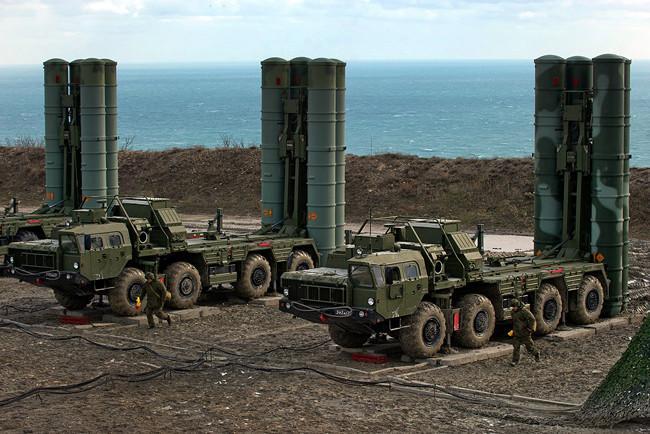
The U.S. is seeking cooperation with Turkey to boost Turkish air defense capabilities as an alternative to Ankara’s purchase of Russian S-400 surface-to-air missile batteries.
“The U.S. understands Turkey’s desire to improve its air defenses. But we are concerned and have said so publicly about potential acquisition of Russian S-400 missiles, which would have implications for NATO interoperability and which would potentially expose Turkey to sanctions due to the new sanctions law recently passed by Congress,” a U.S. administration official told the Hürriyet Daily News.
“We are also working with Turkey cooperatively. This issue was discussed in Ankara last week, about how we can find better solutions to help Turkey’s air defense needs, which we understand are legitimate,” said the official, speaking on condition of anonymity, referring to discussions between U.S. Secretary of State Rex Tillerson and Turkish officials on Feb. 15-16.
Asked if there are specific proposals, the U.S. official simply said “conversations are taking place.”
The S-400 deal, reportedly worth $2.5 billion and in the works for over a year, has raised concerns as the system cannot be integrated into NATO’s military architecture.
The U.S. published on Jan. 30 a list of Russian politicians and oligarchs as part of a sanctions law called the Countering America’s Adversaries Through Sanctions Act (CAATSA). Signed by President Donald Trump, the administration can sanction and cut off all U.S. arms sales to any country doing business with a banned Russian firm.
“[Tillerson] had a very good and productive visit to Turkey in which a lot of good progress was made in talking about issues that Turkey and the U.S. face together,” the U.S official said, adding that in meetings with both Foreign Ministry and presidential officials there was “reaffirmation of shared security interests and shared commitments to the alliance.”
“What is striking to me is not that we have different points of view, it’s that we are what we are today as allies. The alliance is strong, it’s an essential part of our common security efforts. Despite all past differences in issues, we continue to work together to secure the future,” he said.
Asked about differences between Ankara and Washington over the latter’s partnership with the Syrian Kurdish People’s Protection Units (YPG) in the anti-Islamic State of Iraq and the Levant (ISIL) campaign, the official said both Turkey and the U.S. are on the same page regarding the goal of defeating ISIL and maintaining the territorial integrity of Syria.
“Turkey and the U.S. are both active members of the coalition to defeat ISIL. We have the same sets of goals to defeat ISIL, the same sets of goals with regard to a united and stable Syria, and goals about the Geneva-led process. At the end of the day, those core interests are paramount in the U.S.’s works with Turkey in the context of Syria,” he said.
“The coalition to defeat ISIL has never had total agreement on all issues all the time,” the official added, stressing that Tillerson’s visit resulted in the two sides agreeing to establish a formal diplomatic working group mechanism so the two NATO allies “can better address complex issues as they arise.”
The official was briefing reporters from Europe on the U.S.’s current NATO approach, particularly focusing on increasing defense expenditures of allies to 2 percent of GDP for burden-sharing among allies.
“We must work together to deter Russian aggression and defeat ISIL and its successors. We must forge a stronger NATO through increased investments and fair burden-sharing. These will be the priorities for the United States in the days ahead,” he said.
He warned against Russia and its “destabilizing actions” and said NATO should be clear-eyed about it.
“The invasions of Georgia and Ukraine, the violations of arms control agreements, the use of asymmetric tools to sow instability and undermine institutions: These are not the actions of a country that wants to be a strategic partner. Though the United States does not wish to regard Russia as an adversary, Russia has been clear about its goals: Undermine the West, break the transatlantic bond, threaten European security and stability, and re-establish spheres of influence. These facts must drive our policy, especially our deterrence and defense posture,” the official said.
NATO has been clear with Russia that it cannot return to “business as usual” in NATO-Russia relations as long as Moscow continues to “attack its neighbors and undermine our democratic, national and multilateral institutions,” he added.